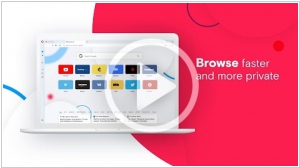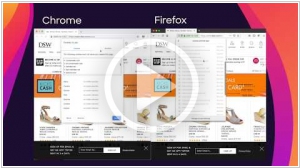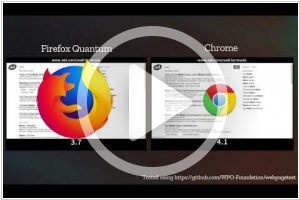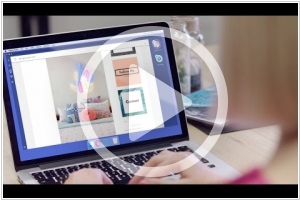Firefox vs Opera
September 07, 2023 | Author: Adam Levine
17

The free, non-profit browser for your desktop and mobile devices. Firefox is created by a global non-profit dedicated to putting individuals in control online. We’ve always designed Firefox to protect and respect your private information. That’s why we’re proud to be voted the Most Trusted Internet Company for Privacy.
Firefox and Opera are two popular web browsers known for their unique features and user-centric approach. Firefox, developed by Mozilla, focuses on privacy, security, and customization. It offers a wide range of privacy features such as Enhanced Tracking Protection, strict cookie control, and the ability to block unwanted content. Firefox also provides a highly customizable interface with a vast collection of extensions, themes, and developer tools. It prides itself on being an open-source browser that puts user privacy and control at the forefront.
Opera, on the other hand, combines speed, efficiency, and innovative features to provide a seamless browsing experience. It offers a clean and intuitive interface with a range of built-in features, including a free VPN, ad blocker, and customizable start page. Opera's unique tools, such as the sidebar for quick access to bookmarks and integrated messaging apps, enhance productivity and convenience. Additionally, Opera places a strong emphasis on speed, with features like Turbo mode that compresses data to optimize performance, especially in low-bandwidth situations.
See also: Top 10 Web Browsers
Opera, on the other hand, combines speed, efficiency, and innovative features to provide a seamless browsing experience. It offers a clean and intuitive interface with a range of built-in features, including a free VPN, ad blocker, and customizable start page. Opera's unique tools, such as the sidebar for quick access to bookmarks and integrated messaging apps, enhance productivity and convenience. Additionally, Opera places a strong emphasis on speed, with features like Turbo mode that compresses data to optimize performance, especially in low-bandwidth situations.
See also: Top 10 Web Browsers
Firefox vs Opera in our news:
2022. Mozilla brings free, offline translation to Firefox

Mozilla has introduced a new translation tool for Firefox that eliminates the need for cloud processing by conducting machine learning-based translations directly on users' computers. This significant advancement is a departure from relying on industry giants like Google and Microsoft for translation services. The tool, called Firefox Translations, can be easily added to the browser. Upon initial use, it may download necessary resources and potentially update models for improved translations, but the actual translation process occurs locally on the user's computer, rather than in a remote data center.
2020. Firefox gets a better password manager
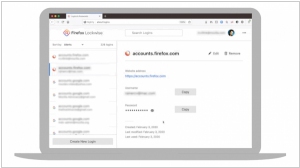
Mozilla has released version 76 of its Firefox browser, introducing an enhanced password manager feature. With the updated Firefox Lockwise, users will now be prompted to enter their device password when attempting to copy and paste credentials from the "Logins and Passwords" page within the browser. Once the device password is confirmed, users can view and copy their credentials for a duration of five minutes. This additional layer of security makes it more challenging for unauthorized individuals to access password-protected websites, particularly on shared computers. Moreover, Lockwise now provides alerts for vulnerable passwords that have been compromised in known breaches, along with warnings if a website you frequent has experienced a breach where your logins and passwords may have been stolen. Furthermore, Lockwise's password generator feature has been expanded to support more websites and can assist in generating random combinations of 12 letters, numbers, and symbols for stronger password creation.
2019. Opera became more secure with built-in tracking protection
The latest release of the Opera browser introduces a new tracker blocker feature designed to enhance your online privacy by making it more challenging for advertisers and other entities to track your browsing activities. A notable advantage of this feature is its ability to accelerate your browsing experience. According to Opera, enabling both the tracking protection and the built-in ad blocker can lead to a page load speed improvement of up to 23 percent. By default, the new tracking protection feature is deactivated, similar to the existing ad blocker. The tracking feature relies on the widely used EasyPrivacy Tracking Protection List, which has been available for several years.
2019. Firefox gets enhanced tracking protection, desktop password manager
Firefox is introducing one of its most comprehensive series of releases designed to prevent advertisers and other entities from tracking your online activities. Additionally, these releases make it more challenging for Facebook to monitor your online behavior. By default, Enhanced Tracking Protection, based on the Disconnect list, will block all third-party tracking cookies. You have the option to choose a strict setting that may impact the functionality of certain websites, or you can customize your own settings. Furthermore, Mozilla is expanding its Lockbox password manager to include desktop support. Previously, Lockbox was only available as a mobile app, but Mozilla has now launched a Firefox desktop extension for it. The name of the password manager has also been changed to Lockwise. Currently, Lockwise provides a straightforward password management experience, although it may not offer the same extensive features as Dashlane, 1Password, LastPass, or similar alternatives.
2019. Opera Touch brought website cookie blocking to iOS
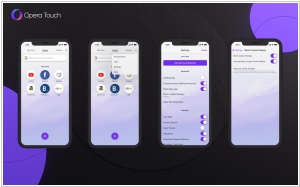
Opera Touch for iOS has introduced an important new feature: cookie blocking. This feature enables the blocking of intrusive dialogs that request your consent for website cookies. These dialogs can be particularly troublesome on mobile devices, often completely interrupting the ability to view content. In contrast, desktop websites typically present a pop-up banner at the top or bottom of the page, which can be (somewhat) ignored. With the widespread implementation of cookie dialogs due to Europe's GDPR regulations, many users find them excessively intrusive. Currently, dismissing these prompts requires an additional click, which slows down web browsing—especially when quickly navigating through multiple websites in search of specific information.
2019. Opera for Android added built-in VPN
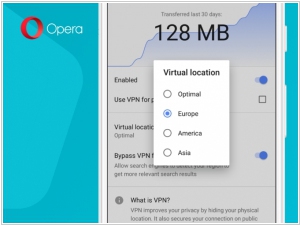
In 2016, Opera introduced a free VPN app for Android, which was later discontinued. However, Opera is now bringing back the free VPN service as part of its Opera browser for Android. The feature is currently in the testing phase and is gradually being rolled out to Opera beta users. Once activated, users can select their desired virtual location, although the options may not be as extensive as those offered by commercial VPN services. Users can choose to appear virtually located in Europe, America, or Asia. Opera assures users that it does not retain any usage logs. Additionally, Opera already provides a free and unlimited VPN within its desktop web browser. Similarly, the mobile browser allows users to bypass the VPN when accessing search engines.
2018. Firefox will now alert you when one of your accounts was hacked

Earlier this year, Mozilla introduced Firefox Monitor, a service designed to inform users if their online accounts were compromised in recent data breaches. By simply providing your email address, Firefox Monitor utilizes the Have I Been Pwned database to display any potential concerns and details regarding the compromised data. Today, Mozilla takes this initiative further by allowing users to sign up for alerts notifying them if their accounts appear in any future known breaches. Mozilla emphasizes that Firefox Monitor is just one of many upcoming data and privacy features planned by the organization in the coming months. With increasing user concerns about privacy and the extensive data collection practices of Google's Chrome browser, Mozilla positions itself as a neutral force in the browser market, and this approach has been well-received.
2018. Firefox ends support of Windows XP, Vista

Mozilla has made the decision to discontinue support for Windows XP and Windows Vista in its web browser, Firefox. This means that security updates for these outdated operating systems will no longer be provided. The termination of support for Windows XP and Vista took effect with the release of Firefox ESR 52.9 on June 26. Subsequently, Firefox ESR 60.2 was introduced on September 4. Mozilla offers Firefox ESR (Extended Support Release) specifically to cater to customers, primarily business users, who prioritize stability over the inclusion of new and flashy features. Unlike the regular Firefox version, each ESR release solely receives security updates throughout its lifecycle. Mozilla typically maintains both the previous and current ESR versions for approximately 12 weeks, with the transition occurring once a year. The overlap period between Firefox ESR 52 and ESR 60 started on May 7, coinciding with the launch of the latter, and concluded on September 4 when security patches were no longer provided for Firefox ESR 52. Currently, Opera remains the only top-five browser that continues to support Windows XP.
2017. Firefox released new ultra-fast web browser to take on Google Chrome
Mozilla's latest browser, Firefox Quantum, delivers an incredibly fast browsing experience. In a comprehensive test conducted by the open-source project WebPageTest, Firefox Quantum outperformed Chrome in loading numerous popular websites, including Yelp, Shutterstock, Ask.com, and even Google Search itself. (Although Chrome remained faster in loading most Google and YouTube pages). Moreover, Firefox Quantum stands out by utilizing approximately 30% less memory compared to its competitors, such as Chrome, Edge, and Safari, on Windows operating systems, and only slightly more memory than Chrome on macOS. This means you can have significantly more tabs open without worrying about your browser crashing or slowing down. However, Mozilla's focus extends beyond speed and memory optimization. Extensive user research has influenced the browser's interface, resulting in Firefox Quantum incorporating several small yet significant features that cater to user browsing patterns.
2017. Opera unveiled browser of the future
Opera, the Norwegian browser company that was acquired by a Chinese investment consortium last year, has unveiled a new experimental browser called Opera Neon. While Neon retains the same underlying Blink rendering engine, which is also utilized by Google Chrome, Opera, and Amazon Silk, its main focus is on visual enhancements. The browser launches with a start page that mimics your desktop wallpaper, creating a window that resembles your actual desktop. On the left-hand side, a set of tools is provided, including a video pop-out feature that allows you to play videos while browsing other pages, and a snap-to gallery that enables you to crop and save any part of a web page for later use. One particularly useful addition is the ability to browse two pages side by side, which stands out among Neon's new features.


